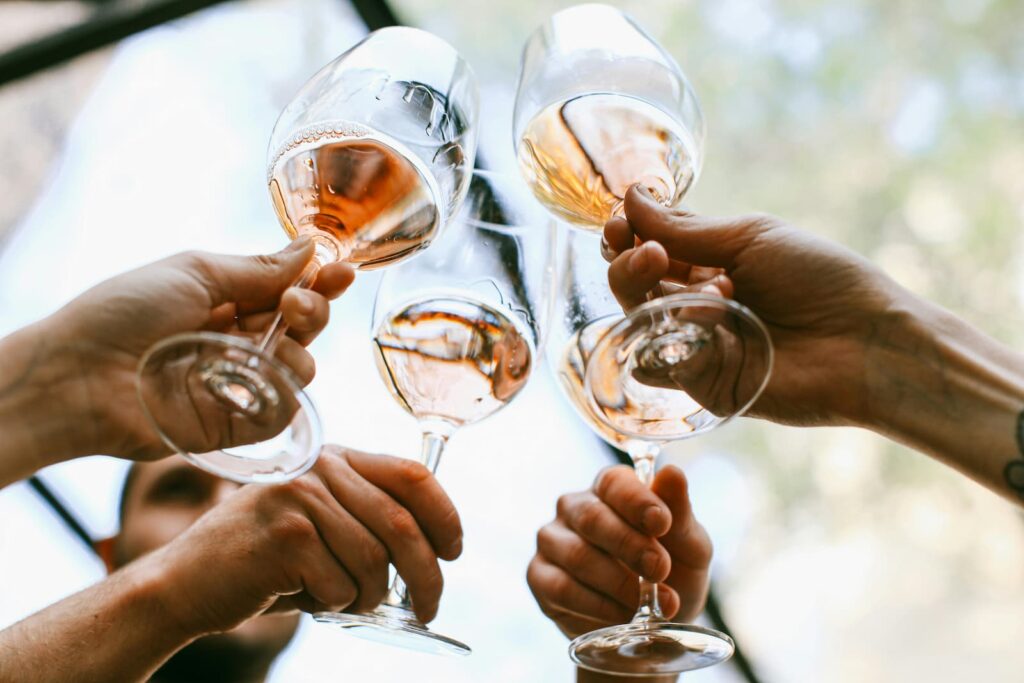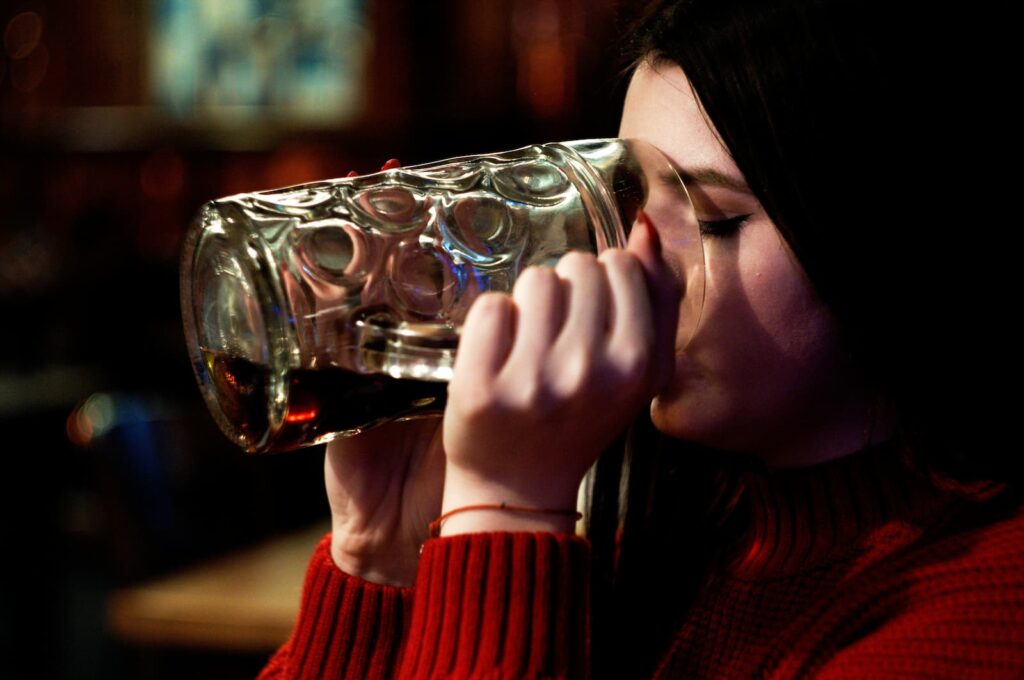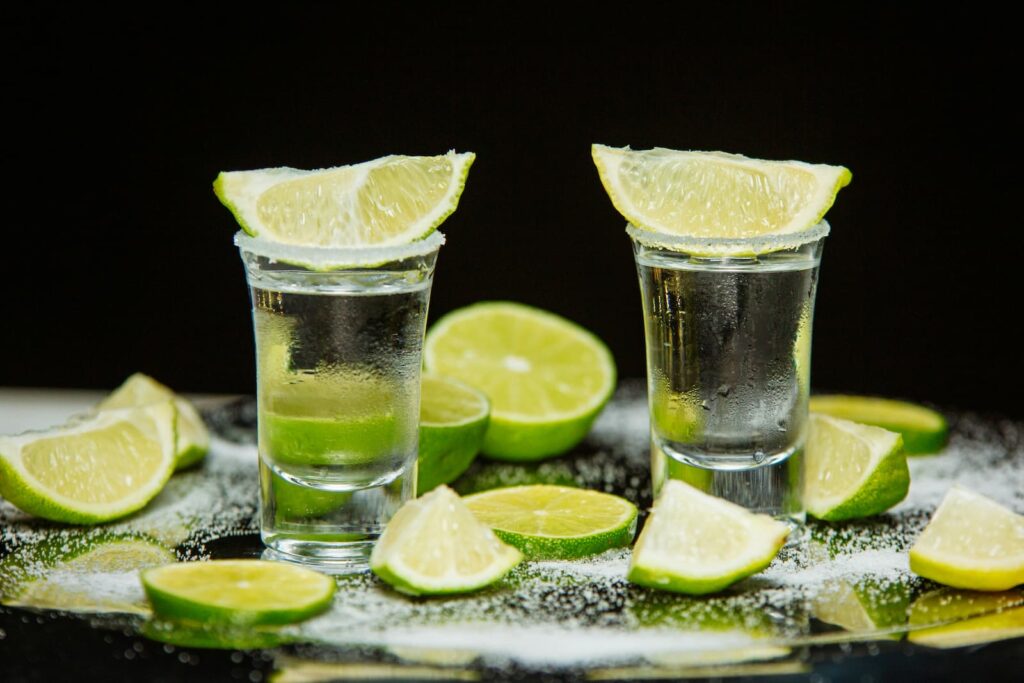
David
Republished on (Originally released on )
![Bottoms Up! English Vocabulary for Drinking [Updated] Bottoms Up! English Vocabulary for Drinking [Updated]](https://assets.blog.engoo.com/wp-content/uploads/sites/9/2024/04/12051822/drinking_english_cover-1024x683.jpg)
From wine to beer and from sake to whiskey, drinking alcohol is something people around the world enjoy.
It's useful to know English vocabulary for drinking even if you don't drink alcohol yourself. After all, drinking may be a part of meetings with friends, holiday parties or even scenes from your favorite movies and TV shows.
This article contains some basic English drinking vocabulary to get you started.

Toast is bread turned brown by heat. But in the context of drinking, "toasting" is raising or touching glasses to celebrate someone or something, usually at the start of an event.
You can either "make a toast" or "propose a toast."
I'd like to propose a toast to Mr. Kim, who supported this project from the beginning.
You can also use it as a verb.
Everyone raised their glasses and toasted the newly married couple.
"Sipping" a drink is drinking a very small amount at a time.
Just like "drink," "sip" can be either a verb or a noun.
I like to sip wine slowly so I can really appreciate the flavor.
You've never tried this beer before? You can have a sip of mine if you want.
"Slamming" a beer is the opposite of sipping one; it means drinking a can or bottle very quickly.
This expression comes from the way people often "slam" — or hit — the can on the table after they’ve finished.
Note that this expression is only used for beer, not for wine or other types of alcohol.
Hurry up and pound that beer so we can go to the next bar.
He slammed three drinks just before happy hour ended.

Similar to slamming a beer, someone "chugs" a drink if they don't take the bottle or glass away from their mouth until it's empty.
"Chug" is an onomatopoeic word, or a word that copies a sound. In this case, it's the sound of someone swallowing a liquid quickly.
Sid was totally drunk after chugging those beers.
People often chant "Chug!" when encouraging friends to drink quickly. Of course, this is only appropriate in very casual situations!
This "down" is actually a verb!
Someone downs a drink when they finish it and their glass, bottle, etc. is totally empty.
Everyone at the party was standing near the bar and downing glasses of champagne.
If you imagine a nurse, you probably think of someone who is gentle and careful.
Similarly, we say that someone is "nursing" a drink when they hold it for a long time and drink it slowly.
This expression is often used as a way to tease someone.
Stop nursing your beer and drink it!
Some people say “babysit a drink,” which has the nuance of someone handling their drink gently, as if it were a small baby.
She’s been babysitting that drink for the last hour.
"Knocking back" a drink simply means drinking it, usually quickly.
We went to the local bar to knock back some beers after a busy day.

"Shots" are small amounts of strong alcohol served in small glasses. Shots are meant to be drunk quickly and all at once.
Remember: We don't say "drink a shot" — instead, it's "do a shot."
I have a serious headache. It was a bad idea to do those tequila shots last night…
For this phrase, imagine someone lifting the bottom of their glass up into the air to completely drink what's inside.
We can use this expression in two different ways: One is as a more casual way to say "Cheers!" The second is when you're encouraging someone to finish their drink, as in the following example:
We'll be late if we don't leave now, so bottoms up and let's go!

"Intoxication" refers to how much someone is affected by alcohol. Someone who has been drinking is "intoxicated."
Each level of intoxication is described with unique expressions, starting with words for people who've had no alcohol to words for people who've had too much!
Someone is "sober" if they haven't been drinking, and therefore aren't intoxicated at all.
I'm driving, so I'm staying sober tonight.
Also, "sober" can describe an alcohol-free lifestyle or refer to a long period of time when someone hasn't had alcohol.
He used to have an alcohol problem, but he's been sober for four years now.
Someone who's been drinking but has a low level of intoxication might be "buzzed" or "have a buzz."
She drank only enough to get buzzed.
I enjoy karaoke the most when I've got a buzz.
The verb "tip" means "to fall or cause to fall and turn over." Similarly, someone intoxicated may have trouble standing or walking without falling, so we say they're "tipsy."
My friend is a bit tipsy, so I need to keep my eye on her to make sure she's OK.
Ben’s really funny when he’s tipsy.
If someone's level of intoxication is higher than tipsy, we can say they're "drunk."
I couldn't remember anything I said while I was drunk.
It's a serious crime to drive drunk.
The verb "smash" means "to break into pieces." And just like a broken product, someone "smashed" from too much alcohol cannot function properly.
I got smashed really early last night, so I didn't make it to the after-party.
In British English, people often use "pissed" in a similar way. But be careful: In American English, “pissed” is a rude word meaning very angry!
I was woken up by a group of pissed college students singing outside my apartment building.
[British English]
I was pissed when the students woke me up.
[American English]
Related article: Should You Learn British English or American English?

Different people have different tolerances, or amounts of alcohol they can drink comfortably. Someone with a low tolerance is called a "lightweight." This is an informal term.
This expression means that someone has had too much alcohol.
The bartender won’t serve Charlie any more drinks; he’s already had too many.
I think I’ve had too many. I’m going home.
When you "drink someone under the table," you drink much more alcohol than they do (or can). Imagine a person getting so drunk that they fall off of their seat and land under the table they were sitting at!
I went out with Frank last weekend, and he drank me under the table.
[= Frank was able to drink much more alcohol than me.]
Someone who can "handle their liquor" can drink a lot without being affected much. Those who can't handle their liquor, however, either get drunk very quickly or behave badly when they drink.
I've never seen Max drunk, even after lots of alcohol. He can really handle his liquor.
Bill always wants to fight someone when he drinks. He can’t handle his liquor at all.
Whether you're enjoying a glass of wine at home or meeting new people in a lively bar, you should know the common English vocabulary for drinking. Try these words out the next time you're having a drink — and always remember to drink responsibly!
If you'd like to learn more vocabulary related to alcohol, be sure to read our article on English for bartenders.
